Explaining Adoption and Measuring Impacts of Conservation Agriculture on Productive Efficiency, Income, Poverty and Food Security in Syria

Authors:
This study employs the Heckman selection model to identify factors affecting the adoption of zero tillage (ZT) and measure its yield, income, and consumption impacts among Syrian wheat producers. A stochastic production frontier model is also estimated to compare the productive efficnecy of adopters and non-adopters. Model results show that participation in field days and hosting on-farm demonstration trials are among the most important variables that enhance adoption. ZT increases yield, consumption, and income and reduces income risk-lifting 57% of the adopters out of poverty. A shift from conventional tillage (CT) to ZT helps farmers to be more technically efficient in production and achieve current output levels with 22% less inputs. Along with environmental benefits documented in existing literature, this study shows that ZT is one of the few technologies whose benefits can be justified on environmental, economic, and food security grounds. The policy implications of these results are that education and extension that encourage farmers to participate in field days and host demonstration trials on their own farms are essential in promoting ZT technology adoption. In-depth analysis of the trade-offs between crop residue retention and the resulting loss in livestock feed in mixed crop-livestock production systems in warranted.
